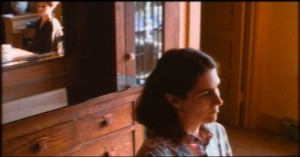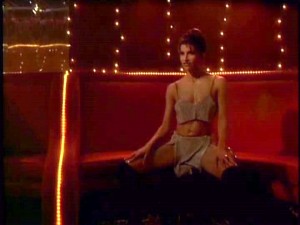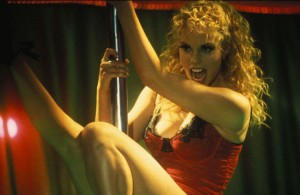From the Chicago Reader (October 1, 1995). — J.R.

This 1993 feature certainly has its flaws — including a wholly unnecessary literary quotation that appears on-screen at the worst possible moment — but it’s still one of maverick independent Jon Jost’s most forceful efforts to date, in part because it stars the most talented actor he’s ever worked with, the resourceful Tom Blair. Mainly known as a stage actor and director, Blair also starred in two of Jost’s best earlier features — as a wandering, jobless malcontent in Last Chants for a Slow Dance (1977) and as a misguided, bullying real estate speculator in Sure Fire (1990). Here he rounds out a loose trilogy of Jost’s corrosive, speculative self-portraits by playing a more sympathetic and ostensibly less alienated character, the owner of a lumber mill employing 60 workers, though the consequences of his situation prove to be even bleaker — and this time they can’t be so confidently traced back to his own character. A tragic, beautiful, and mysterious film that alternates between all-American landscapes (many of them composed as diptychs) and an unraveling nuclear family, this is as evocative and apocalyptic as Jost’s cinema gets — a film full of unanswered questions that will nag at you for days even as it makes fully understandable the sort of feelings about this country that drove Jost into European exile not long after it was completed. Read more
From the September 1, 1995 Chicago Reader. — J.R.

Director Paul Verhoeven and writer Joe Eszterhas’s fresh meat market—a sleazy Las Vegas porn show with clunky production numbers that resemble body-building exercises, backed by heaps of big studio money. The story, a low-rent version of All About Eve, charts the rise of one bimbo showgirl (Elizabeth Berkley) at the expense of another (Gina Gershon); alas, the only actor who seems comfortable is Kyle MacLachlan. It must be admitted that, as with Basic Instinct and Starship Troopers, which I also underrated initially, this 1995 movie has only improved with age—or maybe it’s just that viewers like me are only now catching up with the ideological ramifications of the cartoonlike characters. In this case, the degree to which Las Vegas (and by implication Hollywood) is viewed as the ultimate capitalist machine is an essential part of the poisonous package. With Glenn Plummer, Robert Davi, Alan Rachins, and Gina Ravera. R, 131 min. (JR)

Read more
Adapted from “Journal de Cannes,” translated by Jean-Luc Mengus, Trafic, no. 15, été [summer] 1995. — .J.R.
From 1970 to 1973, when I was living in Paris, it was still possible to write Cannes coverage for two magazines, stay in a cheap hotel, and not lose too much money, and last year I was able to start attending again thanks to being on the selection committee of the New York Film Festival. Despite the opening of a new Palais des Festivals in 1983 and the closing or remodeling of various cinemas, the most significant changes to be found here after two decades could arguably be summed up in a single phrase: what we mean when we say “contemporary cinema,” entailing not only what we include but what we leave out. In theory, all the beauty and horrors, the contradictions and paradoxes of world cinema are crammed in two weeks over a few city blocks. But in practice, how can we say with any confidence that Cannes is an accurate précis of anything except the international film business (which includes the press)?

Perhaps the biggest difference between the seventies and nineties in Cannes is the matter of whose opinions count the most. Read more




